By Halil Özsaraç, ret. Turkish Navy Staff Captain
United World International has organized an international webinar on the topic “The Grain War: Sanctions, Hunger and the Quest for a Mulipolar World” on October 24. Speakers from Russia, Türkiye and Egypt made presentations.
The speaker from Russia was Vyacheslav Matuzov. Matuzov is a former Soviet and Russian diplomat. He is also President of the Society for Friendship and Business Cooperation with Arab Countries and member of the Committee of Solidarity with the Peoples of Libya and Syria.
The entire webinar can be watched on Youtube. Below we present the speech of Halil Özsaraç, retired Turkish Navy Staff Captain. The presentation of Dr. Sharif Fayyad will follow tomorrow.
The food wars
Thank you very much for inviting me as a speaker to this distinguished webinar. I am honored. I would like to start my presentation by greeting the audience. Let’s begin.
In the history of humanity, food has always been abundant in some geographies, scarce in others, and is on a journey from food abundance to food scarcity. And the most critical path of this journey is on the seas.
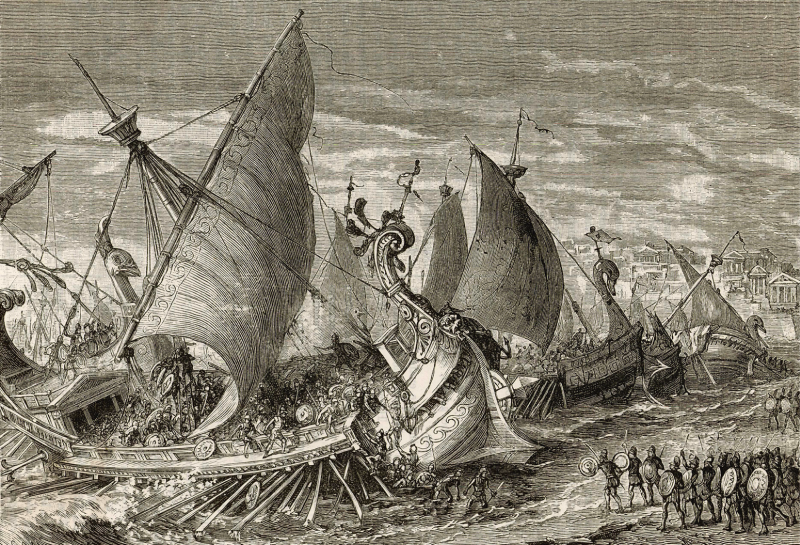
Let me give you some examples of centuries ago. The Delian League, founded in 477 BC, was established to ensure the maritime trade security of Greece, which consisted of 179 small city-states. Since food was mostly traded by sea at that time, the Greek city-states had to become sailors and combine their military capabilities at sea to ensure their food security. The Attica-Delos Naval Union fought the Persians so that the wheat coming south from the Black Sea could come to their lands. This narrow waterway for which they fought for sovereignty was the Istanbul and Çanakkale Straits, known today as the Turkish Straits, and the Sea of Marmara. The Attica-Delos Naval Union, today’s NATO-like defense alliance, had, as soon as they drove the Persians away from the Sea of Islands, difficulties in sharing this rich food trade among themselves.
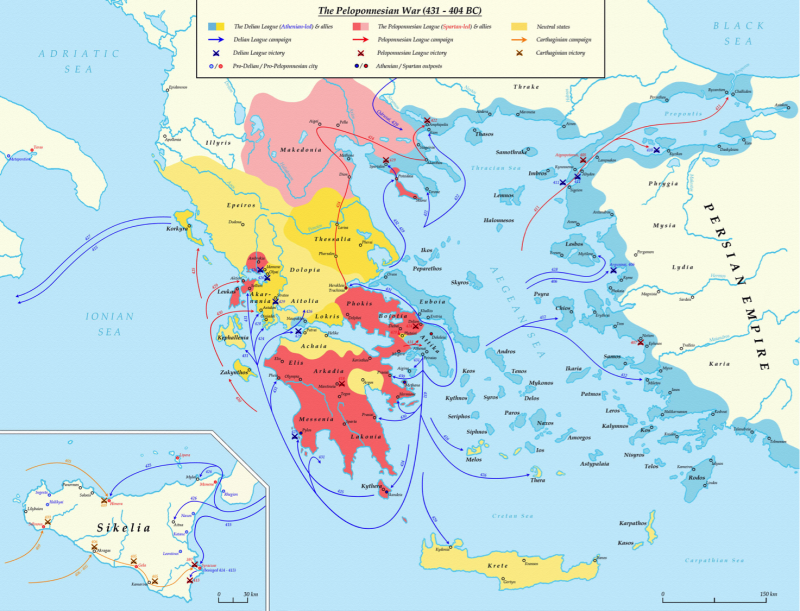
When the Peloponnesian League, led by the Spartans, won the battle for food routes between 431 BC and 404 BC about for 27 years, the Athenian Union, which was trying to become an empire, was dissolved. As you can see, in the ancient periods of history, when food turned into a commodity sold to distant geographies, it began to be transported from the seas and was the subject of long wars. Food that continues to be transported from the seas will continue to be the subject of wars in the future.
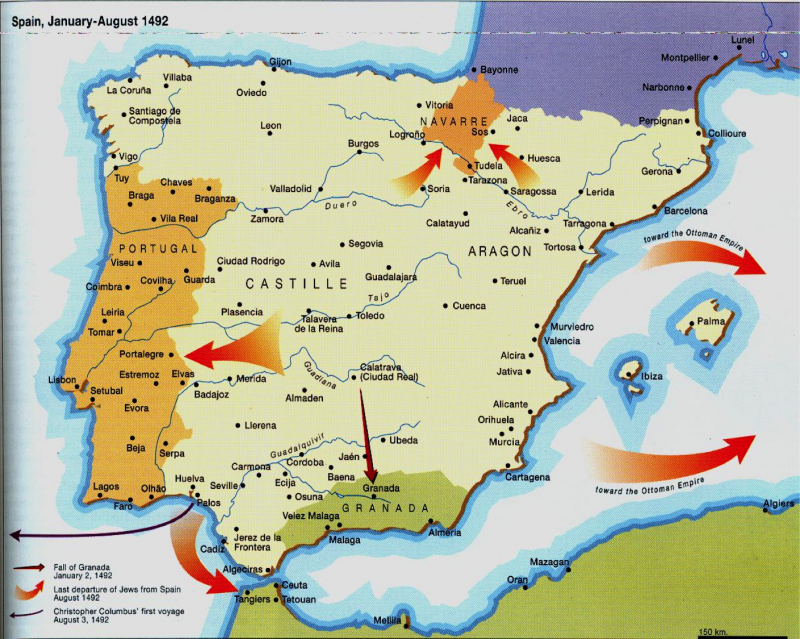
Let’s continue with another example. The example I will give this time also shows that food has the power to influence distant geographies with a very indirect systematics in international relations. Between 1482 and 1492, in the Iberian Peninsula, the last Muslim state in Andalusia, the State of Ben-i Ahmer, was fighting for life and death against the Kingdoms of Castile and Aragon in Granada. The Ben-i Ahmer State asked for help from the Ottoman and Mamluk states in the Eastern Mediterranean. The Ottoman Empire was unable to take its navy to the Mediterranean due to the blackmail of Cem Sultan, which had fallen into the hands of France; The Mamluk State was already without a navy. The Muslims of Andalusia have not been able to get help from anyone other than a limited number of Turkish pirates (raiding chieftains) in the Mediterranean.
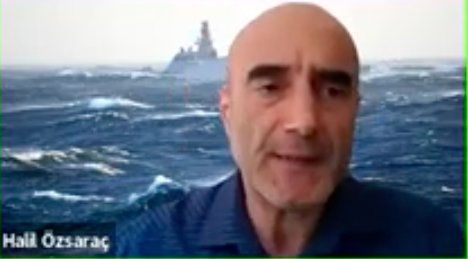
While the war for life and death in Andalusia continued, the Ottoman and Mamluk States began to fight among themselves, between 1485 and 1491. The Ottoman-Mamluk War had lasted for 6 years. Eventually, both states would agree to return to pre-war borders. While this unnecessary war was going on, there was a great famine in Syria in 1489. Since it was at war with the Ottoman Empire, the Mamluk State could not bring wheat through the Black Sea under the control of the Ottoman State. The Mamluks then wanted to buy Sicilian wheat from King Ferdinand II of Aragon, who ruled Sicily. The King of Aragon, who received a special permission from the Papacy for the sale of wheat to Syria, would use the money for the Sicilian wheat he sold to the Mamluk State that year to cover the costs of his military campaign in Granada. This is an exemplary testimony of what international balances can sometimes make states do. Sadly, the Mamluk State, which embraced the Caliph, the protector of the Muslims, became the financier of the Catholic attack on Granada. As a matter of fact, 2 years after this large-scale wheat trade, the last Muslim State in Andalusia was destroyed, and within a few years there was no trace of the Muslim and Jewish population facing the threat of genocide on the Spanish lands. This is an example of how the lack of food that emerged in a war between two Muslim states in the Eastern Mediterranean led to the collapse of another Muslim state in the Western Mediterranean. Food problems in other geographies are critical for everyone, as they have the potential to indirect and destructive power.
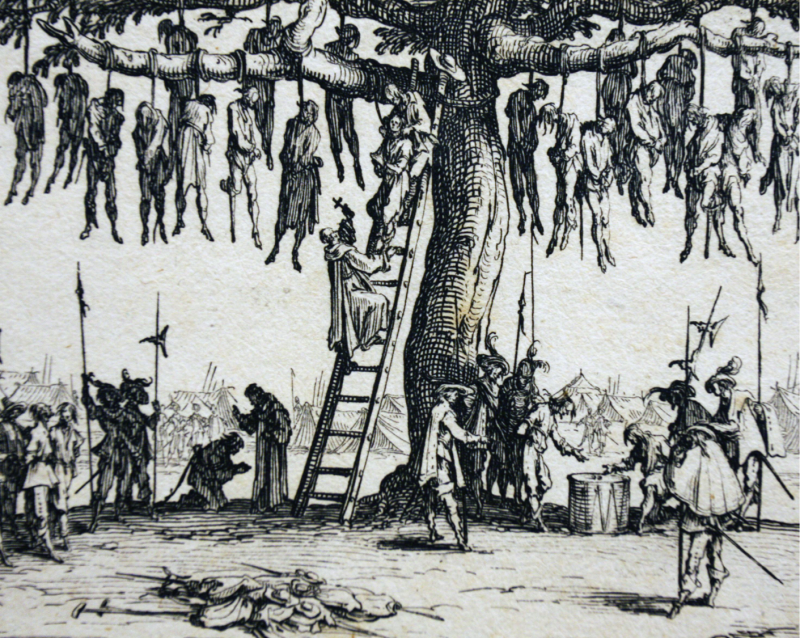
In addition, the power of small-scale, asymmetrical and hybrid military activities on food, apart from wars in which large-scale powers are shifted to different geographies, can be seen all the time. Let me give you two examples from history again. Catholic sailors who dominated the Sea of Islands (Agean) between 12th and 14th centuries plundered the Muslim and Orthodox Christian people settled on the coasts of Anatolia and the Balkans. These colonizers, who exhausted the economic resources of the coasts and ports of the Sea of Islands along with their human resources, also targeted the ships loaded with food coming from the Black Sea and passing through the Turkish Straits. The Ottoman Empire, which was strengthened on land and partly from the Sea of Marmara, first tried to facilitate the export of food to the Venetian and Genoese duchies, which dominated the islands in the Sea of Islands, in order to protect the Muslim and Orthodox Christian peoples living on its coasts. In other words, the Ottomans extended a hand of peace to the Catholics through food. However, when piracy activities did not stop, the sale of foodstuffs to the islands of Mythele, Chios, Limnos and Rhodes, where Catholic pirates were based, was banned in 1390 through the Black Sea and Anatolia. However, these economic sanctions, which were food embargoes, did not have much effect on the Catholic duchies that ruled the Aegean islands. On the contrary, Ottoman maritime policies were radically changed when the Catholic duchies began to deal with more Catholic pirates and began to target more of the food tried to be brought to Anatolia from the sea. In other words, the Ottoman State, which had a high military power on land, started to become a sea power from 1390 onwards in order to combat Catholic hybrid warriors who asymmetrically threatened food security from the seas. The Ottoman State, which had no choice but to become a giant at sea to secure its food, first dominated the Silk Road by seizing the Turkish Straits and the Marmara, then the Black Sea and the north of the Sea of Islands (Aegean). The Ottoman Empire also tried to send the Turkish raiding chieftains led by Kemal Reis, that is, the hybrid power in the sea, to the Western Mediterranean between 1473 and 1495 in order to balance the unstoppable attacks of the Catholic world on the food traffic using the Silk Road. It was not yet understood, but as the Ottoman Empire increased its asymmetrical presence in the Western Mediterranean, that is, in the distant seas, it made it easier to secure food in its own seas. After Kemal Reis and other raiding chieftains returned to the Eastern Mediterranean in 1495, there was again an increase in the attempts of Catholic pirates to steal food in the Sea of Islands. In fact, the crisis-inducing event of the spring of 1508 was the fall of 60 ships loaded with grain into the hands of Catholic pirates. When this incident had a bomb effect on the grain market in Istanbul and increased the grain prices, an Ottoman galley fleet that would build a summer and winter outpost in the Islands (Aegean) Sea was quickly equipped and given to the command of Kemal Reis. Even Kemal Reis’s name was enough to prevent a similar problem from happening again.
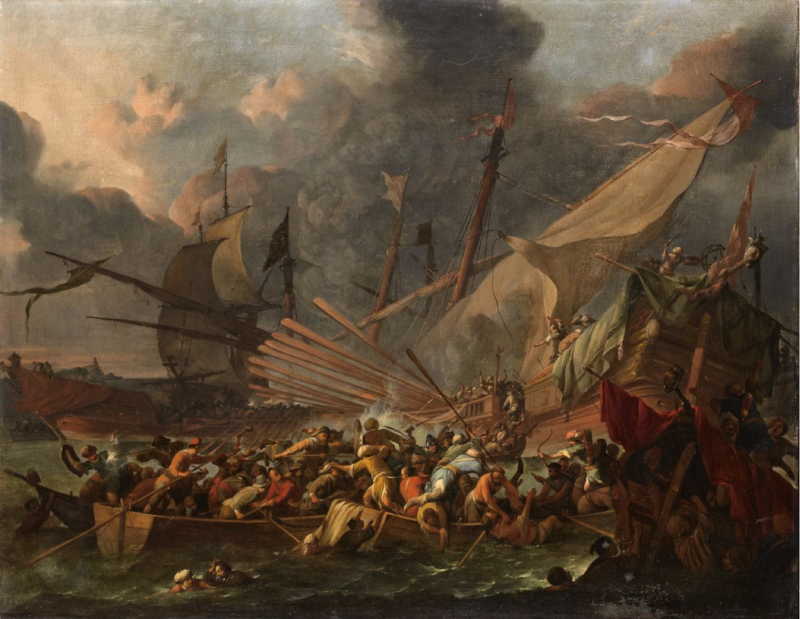
Since the 1510s, the Ottoman Empire has sent all of the 2nd generation Turkish pirates, that is, its asymmetrical power in the sea, to the Western Mediterranean, making the predatory West unable to threaten the food security in the Eastern Mediterranean. The Ottoman State, which captured the Spice Road after the Silk Road, maintained its power as long as it was able to maintain its ability to protect food traffic from distant seas, and as it lost this ability, it weakened and collapsed.
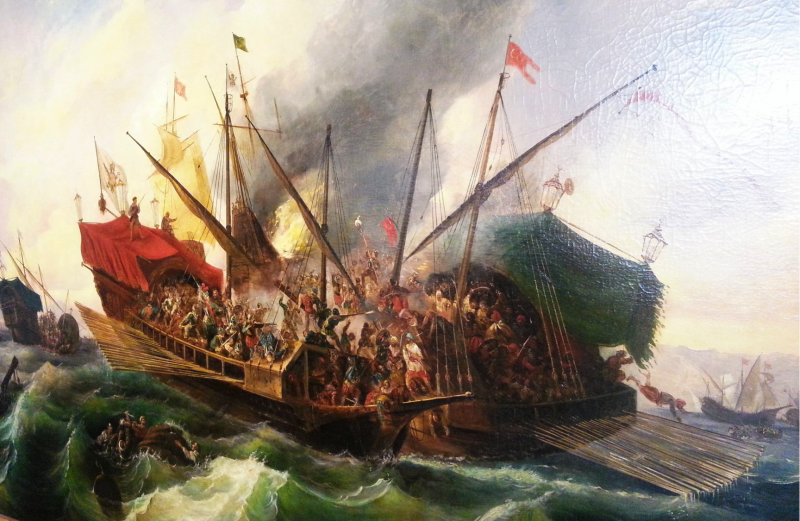
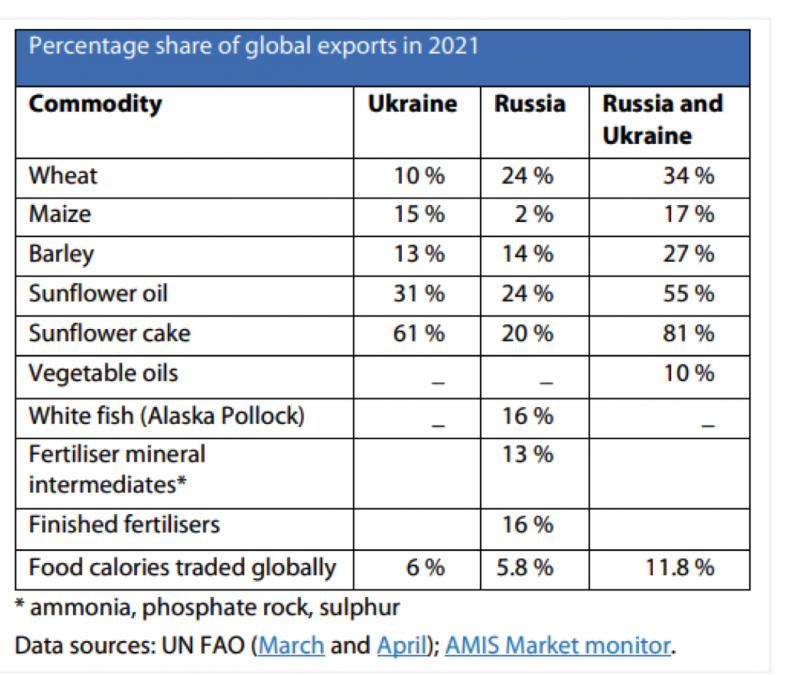
Along with the vitality of food, the vitality of the seas in which food moves; I touched on the vitality of being strong in the seas far away from our own in terms of preserving our food. Now let’s come from the past to the present. Today, as in the past, the impact of the Black Sea on world nutrition is unmatched. When we look at the current data, approximately 12% of the food traded in the world in terms of calories departs from the Black Sea ports of Russia and Ukraine, using the Turkish Straits, the Sea of Islands and the Eastern Mediterranean.
Ukraine, whose grain exports were disrupted because it could not use its ports after Russia’s large-scale military operation against the east of Ukraine on February 24, initially wanted to make a plan to use the railway. But the railway option meant that 30 million tons of grain in Ukraine could be transported in 14 months, using 300,000 wagons, increasing the cost of transportation by a few times. However, this level of food cargo can be transported with only 100 ships in 4 months and much cheaper. The stranding of Ukrainian grain in the Black Sea has led to uneasiness in the Western world and an increase in food prices. With Türkiye’s initiatives, this situation is being tried to be alleviated.
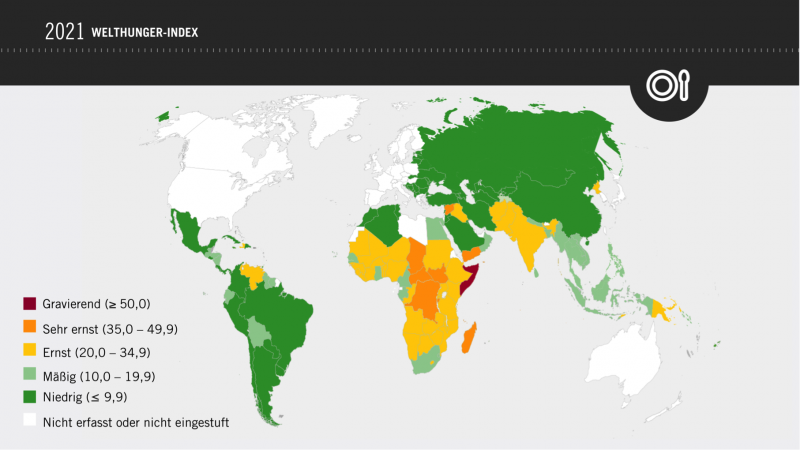
The food crisis scenarios that terrify the West are actually Africa’s chronic problem. On the other hand, Ukrainian grain has never been a food that can go to chronically starving geographies. Ukrainian food feeds mainly the Mediterranean Basin. In addition, the Food and Agriculture Organization of the United Nations has announced that the number of people facing chronic hunger will increase from 811 million in 2020 to 824,1 million in 2022 and 2023. In other words, the Ukraine Crisis has the potential to increase the catastrophe of hunger by as much as 1%. In this case, it would be unrealistic to portray Russia as the scapegoat for world famines.
In a little while, I will touch on the method of combating the hunger problems caused by imperialism in Africa and Asia, especially in the Sahel region. But first, I would like to draw attention to the potential of imperialism’s power at sea to destroy humanity by stopping food traffic.
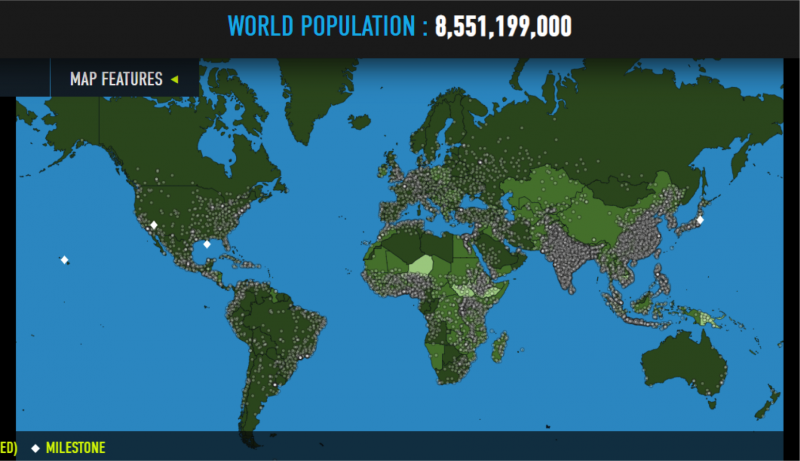
According to United Nations, the urban population increases worldwide by about 150.000 people every day. You see the cities of 2030 on the map. I would like to show you, the main character of the Third World War and the main character of the wars in the future. If World population goes on gathering in urban day by day, does that mean the battle fields will be cities? It needn’t. Urbanisation means the increase of demand for natural resources-especially water, energy and food. In consequence of the fact that 80% of the global population live within 100 km of the coast, a significant -and even further increasing- proportion of the world’s population is living in urban littoral areas. Those urban littorals also host the major ports and trade hubs throughout the world. An area like this represents a complex, cluttered and crowded environment indeed, linking the vital traffic at sea through key transportation hubs with the supply chain ashore, ensuring the flow of cargo. To tell the truth, due to “Urbanization” it has become very difficult to get results in land wars and the cost has increased. This means; the sea is the main place where you will take over your enemy without having to get lost in land wars, which are expensive and costly in terms of qualified human losses. Let’s be realistic. Full scale high intensity combat should be expected at seas, not lands. That’s why, all the geopolitic readings should be done over the seas.
In fact, the struggle for maritime control was at all times a necessary condition for winning the war, but now it is an even more vital necessity to avoid genocide. That is, sea control has the potential to reduce the human population from 8 billion to 4 billion in a year… If, no food comes from the sea, billions in the cities die. This is the main point I wanted to draw your attention to.
While the problem of hunger is Africa’s problem today, it will also be all Asia’s problem in the great wars of the future. Because imperialism, which is a naval empire, will try to reach a result by using its power on the sea in its new great war.

Let’s come to the region that feels the hunger problem the most in the world today: the Sahel region… Thanks to Turkish non-governmental organizations, the Sahel is a region where my wife, who is a doctor and I take a close interest and lend a helping hand. Many Turkish non-governmental organizations (for example, TADD, whose activities I follow closely) are making great efforts to help this region at least feed itself, without expecting anything in return.
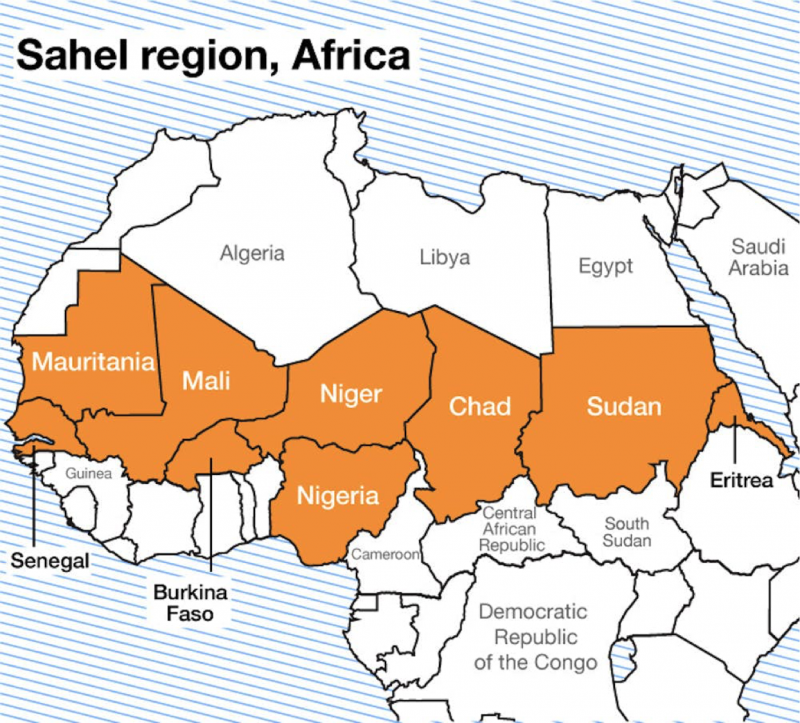
The predatory, colonial West cannot admit that the hunger problems in the world are due to colonialism. It is a predatory Western behavior to explain the starvation of hundreds of millions of poor people living in many parts of Africa and Asia, such as SAHEL, with climatic conditions for a period of a century or so. If the exploitation system catches you, it prevents you from going out to sea and then exploits you. Asia and Africa have been struggling for centuries with the colonialist who came from the sea and imprisoned them on land. The formula for getting rid of colonialism, imperialism and starvation is in the seas. With their human and raw material resources confiscated, Asia and Africa must realize that they can only escape from the marauding West by going out to seas from lands.
Nowadays, NATO’s love of SAHEL draws attention. The 11th article of the NATO Strategic Concept, which was approved at the last summit in Madrid, interestingly emphasizes the conflict, fragility and instability of the Sahel region in Africa, and mentions that the region offers a suitable environment for terrorist organizations and that people will be forced to migrate. As you can see, the expulsion of France from the starving Sahel required the US to intervene in the region through NATO. It is not Russia’s operation in Ukraine that is starving Africa, but imperialism itself. Imperialism is born with the sea, develops, grows and disappears as it is removed from the sea. Asia and Africa should maritime and cooperate in maritimeization. For this, it is necessary to act with a vision based on the ownership of all trade routes around Asia and Africa by Asians and Africans, and the development and unification of defense opportunities from the sea.
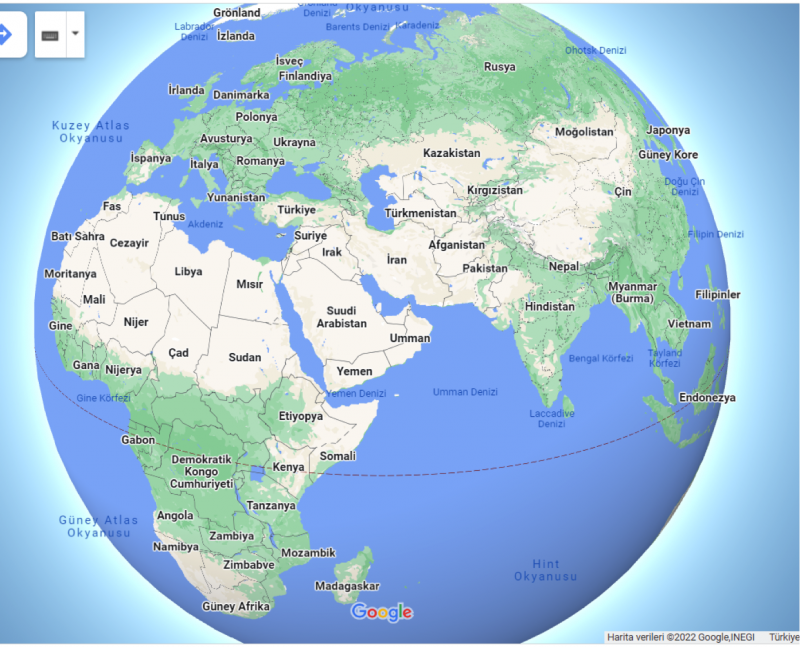
I do not want to spend your time. That’s why let me summarize what to do. The III. World War may bring deaths of billions by way of starvation, instead of nuclear weapons. If there is still time, Continental Asia should try to be strong at sea and protect the maritime trade routes together and prevent this war with the integrated deterrence of “Asia”. If being in a military block is delayed after the World War III, the surviving states of “Asia” should try a military block again. If Asian military block could be founded, it should be tried to be expanded to Africa, of course to Sahel from Red Sea to Atlantic.
So an Asian block should form on the maritime trade routes and encircle Asia from the Black Sea to the Barents Sea. That is;
- Russia with the Arctic and Black Sea;
- Türkiye with the Black Sea, the Turkish Straits and the Eastern Mediterranean;
- Egypt with the Eastern Mediterranean, Suez and the Red Sea;
- At least one of Yemen, Somalia, Djibouti or Eritrea with Bab-el Mandep Strait;
- At least one of the United Arab Emirates or Oman as well as Iran with the Persian Gulf and the Strait of Hormuz;
- At least one of Malaysia, Singapore and Indonesia with Strait of Malacca;
- And China with West Pacific.
All these countries should embrace all of Asia, securing the maritime trade routes around Asia. If this block stands firm in the sea, it will become stronger. It will also be a center of attraction for Asian states such as India and Pakistan, which have coasts to the sea, and the Turkish States and Afghanistan, which are Asian states that cannot reach the sea, and of course all African states. If it leaves NATO, the easiest link for the creation of such a maritime block is actually Türkiye. Because the 1936 Montreux Straits Convention is a temporary agreement and its term expired in 1956, but it is being implemented even in 2022 because the whole world is in favor of its continuation. Türkiye has the right to terminate this agreement. If the treaty is terminated, the internal waters regime will come into effect in the Turkish Straits and Türkiye will have the right to determine the transit regime as it wishes. We should realize “Asia Military Block” by connecting our seas. If strong Asia Block founded, then it is easy to penetrate starving Africa by way of Red Sea and Mediterranean on Libya and Algeria.
We wish Egypt to turn to Asia instead of predatory West. Getting rid of Egypt’s influence from the West and adapting the transitional regime in the Suez Canal to the interests of Asia is an important stage of our dream. The name of this dream is the “Asian Sea Empire”, which was never established in history. Only an Asian naval empire can cope with the huge naval empire of NATO, QUAD and AUKUS chain blocks that the predatory US has established in the West. Under the leadership of Türkiye, Egypt, İran, China and Russia, this dream should cease to be a dream. It should come to reality. We must seek ways to persuade the states controlling the sea lanes surrounding Asia to cooperate and join forces to fight imperialism, and of course to fight imperialism sourced starvation together. Gentlemen, thank you for your listening.


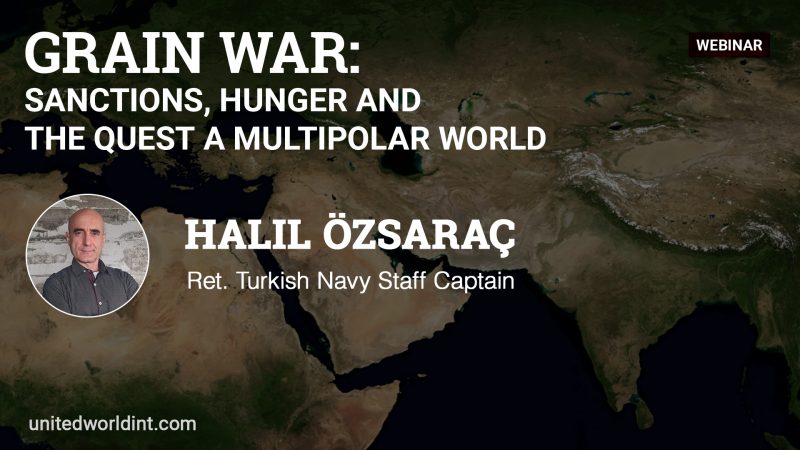



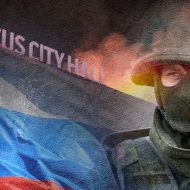
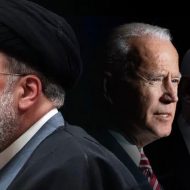
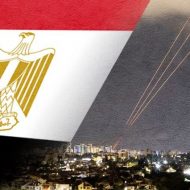
Leave a Reply